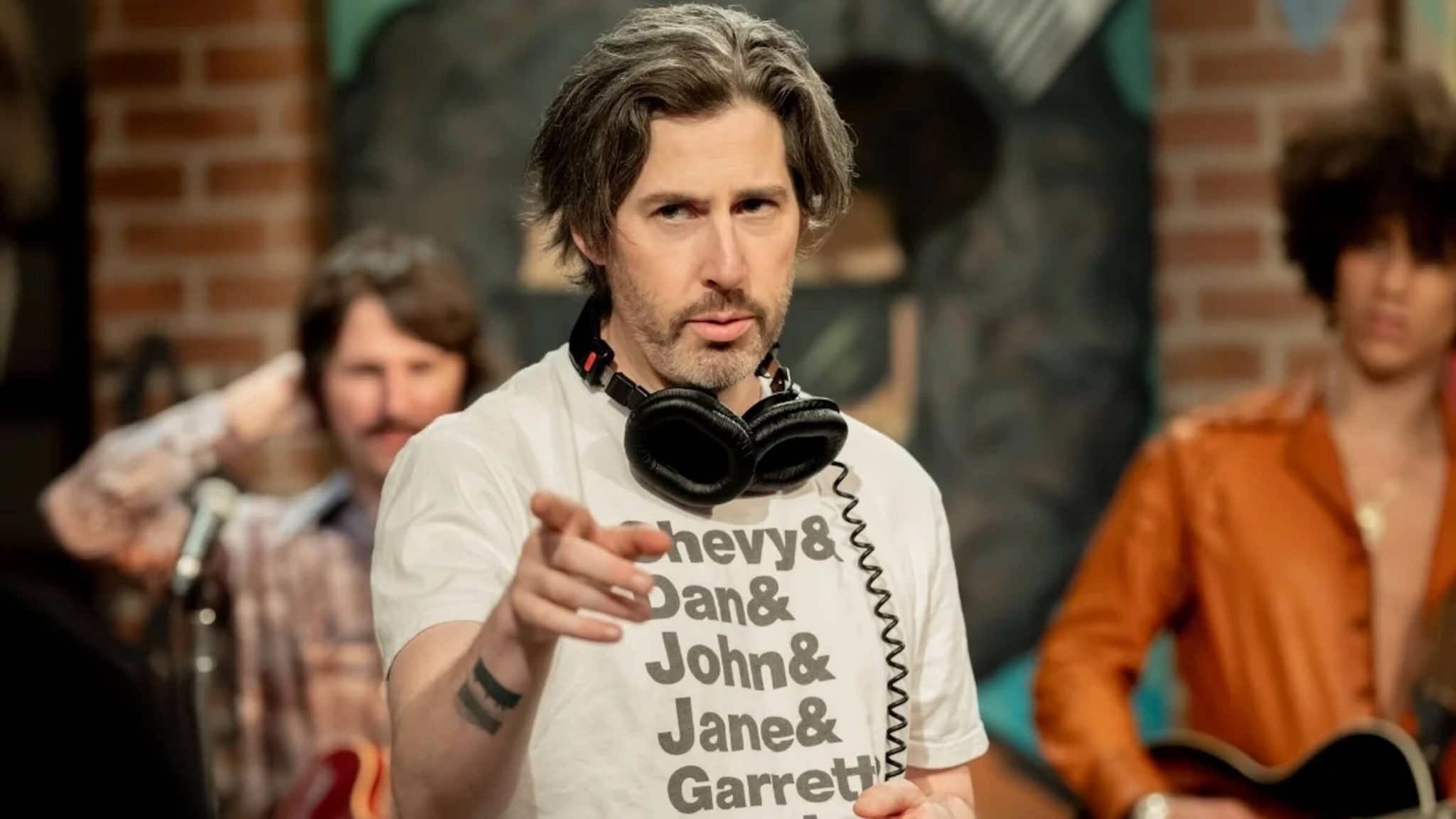5 Lessons 'Mainstream' Writer/Director Gia Coppola Can Teach You About Storytelling

If Gia Coppola’s first feature film, Palo Alto (2013), explored teen angst and the search for meaningful connection, Mainstream has graduated to the 20-something extension of that search, which can be complicated (and sometimes dangerous) in the age of social media. The director calls it a “cautionary fairytale about what our culture values and the psychological dangers that can come with it.”
Coppola is the granddaughter of Francis Ford and is the newest iteration of the filmmaking dynasty. The soft-spoken, intellectual 34-year-old strives for authenticity in her work and mostly gets it in Mainstream, which stars Andrew Garfield and Maya Hawke, even if that can look ugly, annoying, and nightmarish at times.
I spoke to her over Zoom about Mainstream and writing in general. Here are her five pieces of advice for screenwriters.
Borrow and Steal
Aaron Sorkin once said, “Good writers borrow from other writers. Great writers steal from them outright.” Sorkin even stole that phrase from writer T.S. Eliot, reiterating the point. Sometimes, great stories already exist and just need an update – your update. That’s what happened when Coppola was watching Elia Kazan’s A Face in the Crowd where country singer, Lonesome Rhodes (Andy Griffith), rises to stardom and wealth despite being the voice for the working class. She wondered what that kind of story would look like today.
“I was really inspired by Lonesome Rhodes and in general, I just really like a wild and crazy character that has a crack up. Nicholas Cage is one of my favorite actors and I like that kind of performance. Andrew [Garfield] is obviously so talented, one of the great talents of our time, so being able to collaborate with someone like that was really exciting.”
The takeaway: It’s perfectly fine to take an old story with a universal theme and put your own spin on it. As our culture changes, many familiar themes will resonate with today’s audience through a modern or genre lens. Aren’t movies like Star Wars and Avatar just retellings of David and Goliath? Aren’t movies like The Wizard of Oz and Soul just newer versions of Alice in Wonderland? Great story ideas are already there, you just need to look for them.
Make Your Antagonist Memorable
Yes, your antagonist! In Mainstream, Garfield plays No One Special with boundless energy, but the twisted details of his character are all on the page. Dressing up as a cockroach and going all-in for shock value are the tools Coppola and Stuart gave him to express himself. Garfield dazzles in the role. But to play the outrageous character, Coppola says they also needed to keep the character real and grounded.
“Andrew has a goodness about him that and when you create a deranged character, how do you make sure you want to watch him and stay engaged? You need to have that undertone of that person that’s very alluring.”
The takeaway: Go big with your antagonist but give them at least one redeeming quality or likable trait such as an underlying goodness or captivating charisma. Most villains are charming as hell (think Hannibal Lector or The Joker). This is how you make a memorable antagonist.

'Mainstream'
Let Your Curiosity Drive You ‘Full-Throttle’
Coppola says she’s been wanting to explore the world of social media and YouTube influencers for some time mostly because she was curious as to why they are so incredibly popular.
“I was fascinated by it. I couldn’t wrap my head around why this is such an engaging thing to people. When I feel confused, I need to go in full throttle and relieve that question for myself. It was an itch that really needed to be scratched.”
The takeaway: If you’re not curious to a fault about the subject matter in your screenplay, your audience won’t be either. Say you want to write a script about cryptocurrency, you need to explore details of the world and get specific about the people who inhabit that world. Let yourself be obsessed and become an expert.
Five Questions to Ask Yourself When Writing Characters
Coppola says it’s important to do a deep dive into a character’s motivation when writing them. Questions she asks herself are, “Who are these people? How did they get here? Why are they making the choices that they’re making? How did we as a culture get here and where are we going?” She adds that when you can answer these questions with confidence, “that’s when you learn so much about yourself and life. I feel that creates authenticity – does it feel real when I go into it? Does each moment feel true?”
The takeaway: If you can’t give detailed answers for each of these questions, your characters or story aren’t fully fleshed out – yet. Write your answers down on paper and keep revisiting, revising your answers each day. Another tip from Aaron Sorkin is to think about your character at the pearly gates, trying to get into heaven. What is their argument for being let in? Their answer may surprise you.

'Mainstream'
Keep it Personal
Coppola says to always write what’s deeply personal, even if it makes you feel vulnerable.
“Always go into telling your story with something that’s unique to you. We’re all such unique individuals, so why not share that? It’s what makes us expand as a community. It’s about trying to express yourself."
In Mainstream, Frankie, the protagonist, is grieving her father’s death. The fact Coppola never knew her own dad due to his untimely death before she was born, shows how powerful giving your protagonist just one painful, personal detail can be.
The takeaway: Your characters shouldn’t be carbon copies of you, but they should reflect your own personal pain and hardships. It can be scary to go that deep and dredge up your personal history, but that’s how you get to great, three-dimensional characters.
Mainstream is available on streaming platforms and in theaters May 7th.
Get Our Screenwriting Newsletter!
Get weekly writing inspiration delivered to your inbox - including industry news, popular articles, and more!




























